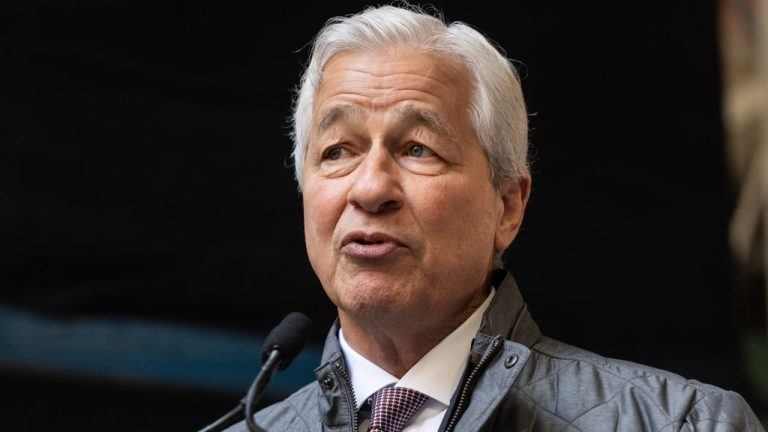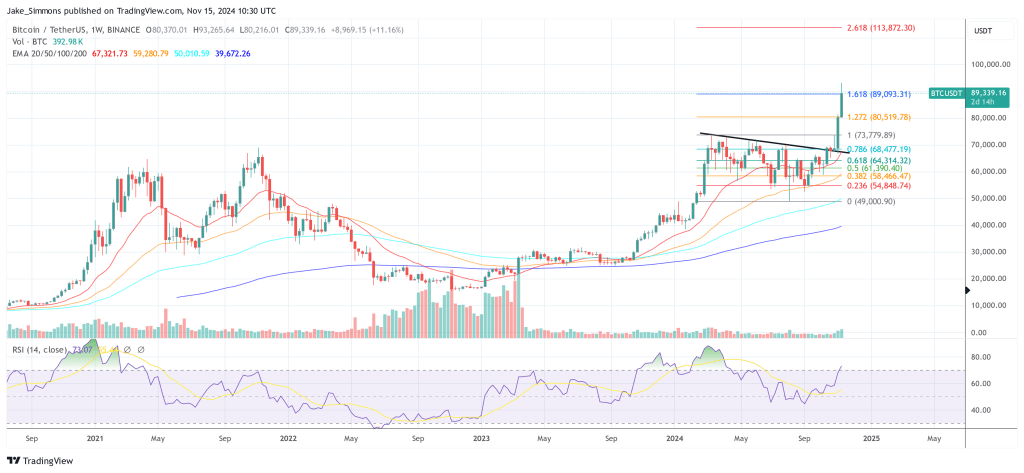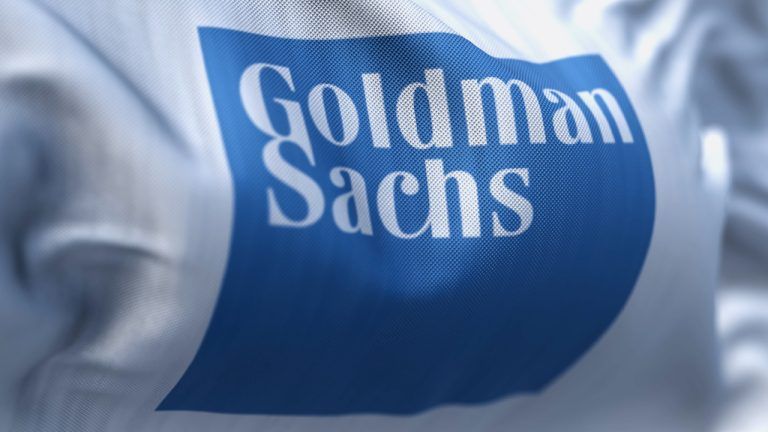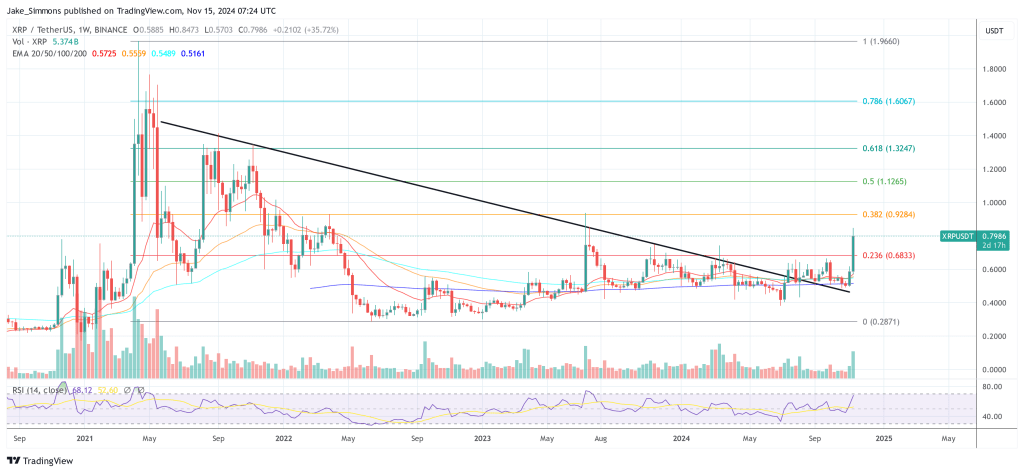CoinShares, a European cryptocurrency investment firm, said on Monday that it had acquired Napoleon Asset Management following approval from the Autorité des Marchés Financiers (AMF).
According to the press release, the transaction was completed on June 30, following the Napoleon Group acquisition Acquisition Acquisition means acquiring or taking possession or the securing of property, services, or abilities. To put it simply, it is the act or process of acquiring or gaining. You can acquire a work of art, you can acquire an ability such as speaking another language, you can acquire a business or shares in a company and you can acquire an accountant's service. For example, you can acquire a new car. In a broad sense, Acquisition can mean the act of taking ownership or possession of something. There are many ways to acquire or to take the acquisition of property and services. How Companies Utilize AcquisitionsIn finance, the term acquisition is most often used when referring to taking control of a company. An acquisition can be either an agreed deal or a hostile takeover. Companies also may acquire units of a company, property, or other assets. An acquisition is when one business, person, or company purchases most if not of another company's shares to gain control of that company. Buying more than 50% of a target firm's stock and other assets allows the acquirer to make decisions about the newly acquired assets without the approval of the company's shareholders. In finance, there are several types of acquisitions that one speaks of when referring to Acquisitions and Mergers. A horizontal acquisition is when two companies come together with similar products/services. Conversely, a vertical acquisition means two companies join forces in the same industry, but they are at different points on the supply chain.Moreover, a conglomerate represents two companies in different industries join forces, or one takes over the other to broaden their range of services and products. Finally, a concentric acquisition occurs when companies will share customers but provide different services. Acquisition means acquiring or taking possession or the securing of property, services, or abilities. To put it simply, it is the act or process of acquiring or gaining. You can acquire a work of art, you can acquire an ability such as speaking another language, you can acquire a business or shares in a company and you can acquire an accountant's service. For example, you can acquire a new car. In a broad sense, Acquisition can mean the act of taking ownership or possession of something. There are many ways to acquire or to take the acquisition of property and services. How Companies Utilize AcquisitionsIn finance, the term acquisition is most often used when referring to taking control of a company. An acquisition can be either an agreed deal or a hostile takeover. Companies also may acquire units of a company, property, or other assets. An acquisition is when one business, person, or company purchases most if not of another company's shares to gain control of that company. Buying more than 50% of a target firm's stock and other assets allows the acquirer to make decisions about the newly acquired assets without the approval of the company's shareholders. In finance, there are several types of acquisitions that one speaks of when referring to Acquisitions and Mergers. A horizontal acquisition is when two companies come together with similar products/services. Conversely, a vertical acquisition means two companies join forces in the same industry, but they are at different points on the supply chain.Moreover, a conglomerate represents two companies in different industries join forces, or one takes over the other to broaden their range of services and products. Finally, a concentric acquisition occurs when companies will share customers but provide different services. Read this Term in December 2021. Napoleon Asset Management has been licensed under the Alternative Investment Fund Manager (AIFM) Directive since March 2019.
As a crypto exchange-traded product (ETP) issuer, CoinShares is now able to offer AIFM-compliant products and services through Napoleon Asset Management.
Statements from the Companies' Management
“We have continued to build upon the synergies between our two businesses since CoinShares acquired the Napoleon Group last December. The integration of Napoleon Asset Management into the group was anticipated at that time but necessarily needed to await consideration by and approval of the change of control by the AMF. Now that approval has been granted, this acquisition by CoinShares will further strengthen the ties between us,” Jean-Charles Dudek, the Chief Executive Officer of Napoleon Asset Management, commented.
Moreover, Jean-Marie Mognetti, the Chief Executive Officer of CoinShares, pointed out: “After the recent events in the digital asset sector, it has never been more clear that strong regulation is needed for crypto to thrive. As such, we are very pleased to have received this approval from the AMF to acquire Napoleon Asset Management. Bringing the company into our group is a further step in the right direction towards investor protection. We are proud to be one of the most regulated digital asset investment firms in the industry. Our regulated status in a growing number of jurisdictions is one of CoinShares’ principal strengths; it reassures our clients and demonstrates our plans to lead Europe’s digital asset sector.”
CoinShares, a European cryptocurrency investment firm, said on Monday that it had acquired Napoleon Asset Management following approval from the Autorité des Marchés Financiers (AMF).
According to the press release, the transaction was completed on June 30, following the Napoleon Group acquisition Acquisition Acquisition means acquiring or taking possession or the securing of property, services, or abilities. To put it simply, it is the act or process of acquiring or gaining. You can acquire a work of art, you can acquire an ability such as speaking another language, you can acquire a business or shares in a company and you can acquire an accountant's service. For example, you can acquire a new car. In a broad sense, Acquisition can mean the act of taking ownership or possession of something. There are many ways to acquire or to take the acquisition of property and services. How Companies Utilize AcquisitionsIn finance, the term acquisition is most often used when referring to taking control of a company. An acquisition can be either an agreed deal or a hostile takeover. Companies also may acquire units of a company, property, or other assets. An acquisition is when one business, person, or company purchases most if not of another company's shares to gain control of that company. Buying more than 50% of a target firm's stock and other assets allows the acquirer to make decisions about the newly acquired assets without the approval of the company's shareholders. In finance, there are several types of acquisitions that one speaks of when referring to Acquisitions and Mergers. A horizontal acquisition is when two companies come together with similar products/services. Conversely, a vertical acquisition means two companies join forces in the same industry, but they are at different points on the supply chain.Moreover, a conglomerate represents two companies in different industries join forces, or one takes over the other to broaden their range of services and products. Finally, a concentric acquisition occurs when companies will share customers but provide different services. Acquisition means acquiring or taking possession or the securing of property, services, or abilities. To put it simply, it is the act or process of acquiring or gaining. You can acquire a work of art, you can acquire an ability such as speaking another language, you can acquire a business or shares in a company and you can acquire an accountant's service. For example, you can acquire a new car. In a broad sense, Acquisition can mean the act of taking ownership or possession of something. There are many ways to acquire or to take the acquisition of property and services. How Companies Utilize AcquisitionsIn finance, the term acquisition is most often used when referring to taking control of a company. An acquisition can be either an agreed deal or a hostile takeover. Companies also may acquire units of a company, property, or other assets. An acquisition is when one business, person, or company purchases most if not of another company's shares to gain control of that company. Buying more than 50% of a target firm's stock and other assets allows the acquirer to make decisions about the newly acquired assets without the approval of the company's shareholders. In finance, there are several types of acquisitions that one speaks of when referring to Acquisitions and Mergers. A horizontal acquisition is when two companies come together with similar products/services. Conversely, a vertical acquisition means two companies join forces in the same industry, but they are at different points on the supply chain.Moreover, a conglomerate represents two companies in different industries join forces, or one takes over the other to broaden their range of services and products. Finally, a concentric acquisition occurs when companies will share customers but provide different services. Read this Term in December 2021. Napoleon Asset Management has been licensed under the Alternative Investment Fund Manager (AIFM) Directive since March 2019.
As a crypto exchange-traded product (ETP) issuer, CoinShares is now able to offer AIFM-compliant products and services through Napoleon Asset Management.
Statements from the Companies' Management
“We have continued to build upon the synergies between our two businesses since CoinShares acquired the Napoleon Group last December. The integration of Napoleon Asset Management into the group was anticipated at that time but necessarily needed to await consideration by and approval of the change of control by the AMF. Now that approval has been granted, this acquisition by CoinShares will further strengthen the ties between us,” Jean-Charles Dudek, the Chief Executive Officer of Napoleon Asset Management, commented.
Moreover, Jean-Marie Mognetti, the Chief Executive Officer of CoinShares, pointed out: “After the recent events in the digital asset sector, it has never been more clear that strong regulation is needed for crypto to thrive. As such, we are very pleased to have received this approval from the AMF to acquire Napoleon Asset Management. Bringing the company into our group is a further step in the right direction towards investor protection. We are proud to be one of the most regulated digital asset investment firms in the industry. Our regulated status in a growing number of jurisdictions is one of CoinShares’ principal strengths; it reassures our clients and demonstrates our plans to lead Europe’s digital asset sector.”

You can get bonuses upto $100 FREE BONUS when you:
💰 Install these recommended apps:
💲 SocialGood - 100% Crypto Back on Everyday Shopping
💲 xPortal - The DeFi For The Next Billion
💲 CryptoTab Browser - Lightweight, fast, and ready to mine!
💰 Register on these recommended exchanges:
🟡 Binance🟡 Bitfinex🟡 Bitmart🟡 Bittrex🟡 Bitget
🟡 CoinEx🟡 Crypto.com🟡 Gate.io🟡 Huobi🟡 Kucoin.




















Comments